'What drove me on to get out of my hospital bed was one aim: to ride again'
Peter Thomas talks to the former rider after brain injury forced a career change
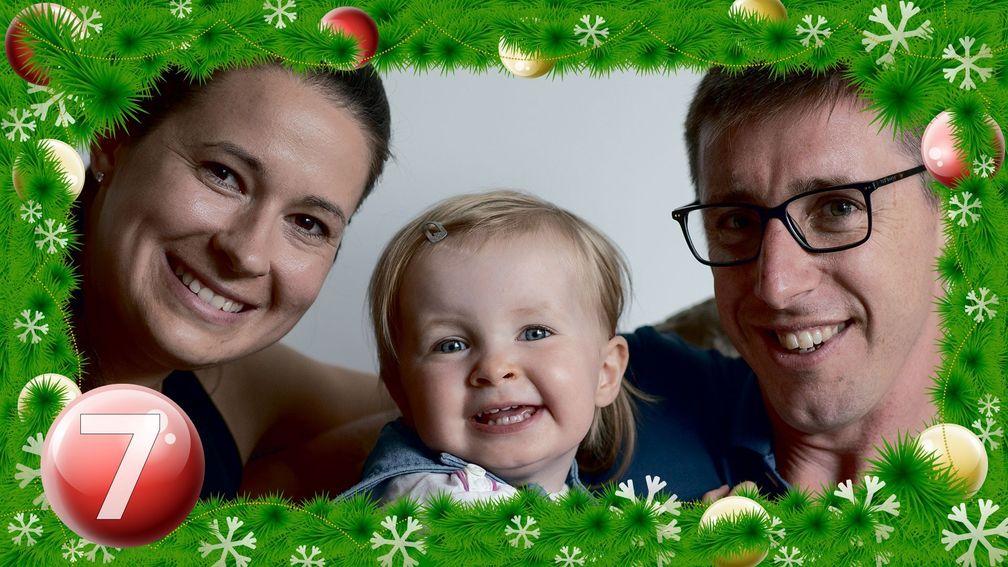
On the seventh day of Christmas, Racing Post gave to me . . . a Big Read with George Baker – first available to Members' Club subscribers on September 15, 2018. Click here for more information and to sign up
He hasn't ridden a horse for 19 months now, but in a T-shirt and shorts, George Baker the victim of brain trauma still looks very much like George Baker the jockey. He's still six feet tall, still in possession of just enough body fat to stop him from being transparent, not quite as bony as he was in his professional prime, but you'd fancy a couple of hours in the sauna would be enough to remedy that. He'd never have ridden bottom weight in a handicap at the best of times, but he certainly hasn't let himself go, you'd say – although you'd be wrong, apparently.
"I'm 11st 4lb now," he says, patting an imaginary roll of fat round the place where the rest of us have real rolls of fat, "and I used to be able to do 9st at a push," a revelation that prompts a disbelieving call for clarification of the figures. He's had a bump on the head, after all, and he may be confused between his imperial and his metric.
Not a bit of it. This man, marginally less skinny than a rake, used to weigh 32lb less than he does now, which is beyond comprehension. Put another way, he's just about the only 36-year-old chap on the planet who has put on 2st 4lb in a year and a half and can laugh about it.
"I used to be a 26-inch waist and now I'm a 34," he grins. "In fact, everything's got bigger except the one thing I wanted to get bigger."
Nicola Baker rolls her eyes, possibly having heard this line and others like it many times before. She's seen enough trauma in recent times, however, to regard a persistently inappropriate sense of humour in her husband as less a source of discontent and more a cause for celebration, ever since the day in February 2017 when a fall during a 'White Turf' meeting on the ice at St Moritz left him in an induced coma with an uncertain but definitely unpleasant prognosis.
"I watched a TV programme in which a doctor said he'd take an amputation of both his legs over a brain injury any day," says Nicola, "because to lose your character must be the worst thing that can happen. If you lose a leg you're still you, but if you lose your character you're not you anymore. Luckily, enough of George is still in there that he's still George."
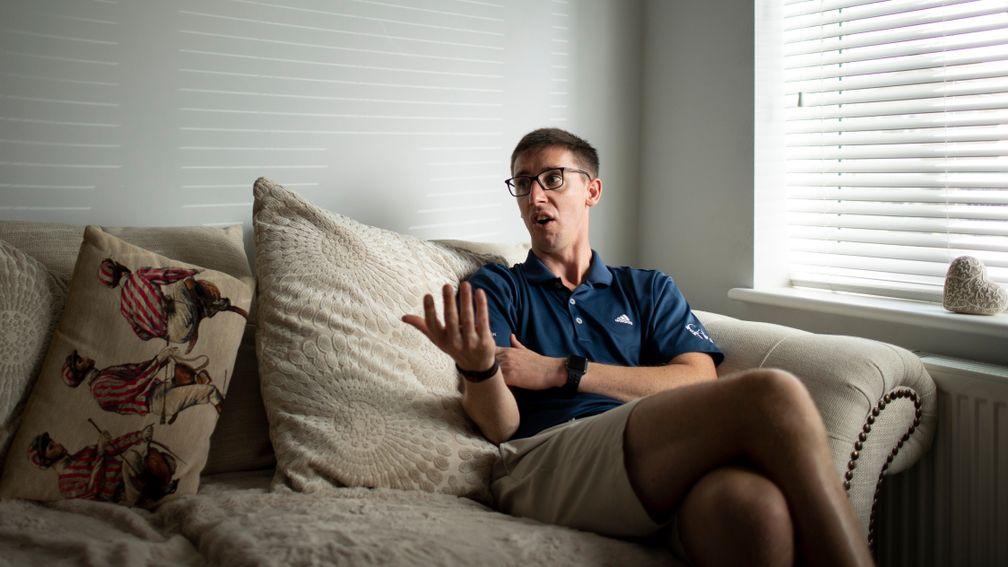
George is very much still George, and anybody who has been following the narrative of his new book, Taking My Time, from an excerpt in the Racing Post will be aware that, far from being an unremittingly dark and gloomy affair, it's in large part an affirmation of the value of laughter in coping with life's most trying assaults on our sanity. Part of this is unmistakably the gallows humour of the weighing room, the professional jockey's means of staving off the worst excesses of the job. What's more surprising, perhaps, is that where George's coma and memory loss leave him unable to add his irreverent take on proceedings, it's Nicola who steps in with tales of hubby's barmy antics that go against the modern grain of self-pity and mournful introspection. Perhaps it's just that enough time has passed for the most painful tribulations to have given way to relief. Or perhaps not.
"Even at the time I had to laugh at some of the things that happened," says George's former Newbury schoolmate, later the victim of his poor attempts at Facebook 'stalking', then marriage. "You have to laugh when it's that ridiculously funny. It is what it is and when there's somebody singing ridiculous things at the top of their voice in a hospital ward, you have to go with it, even though in your head you're hoping it ends soon.
"Of course it got bad. The worst point was on the Tuesday [after the fall on the Sunday]. He had a big haematoma on his right leg which they thought was what was stopping the right leg from working, then they came down and did a heel-prick test and he didn't react at all, so they called the neurosurgeon down and they were unsure whether it was brain or spinal. They wanted to leave it until the Friday to do the scan, to let his brain calm down, so it was a long wait to find out, and we were left wondering which worst option you'd rather it was: brain or spine."
It turned out to be brain. Lots of brain trauma and bleeding, parts rattling around that shouldn't have been, and very little positive to report, except that he was still alive. "Bits die and other bits take over the functions, which is why you have to learn to do things all over again like a child," explains Nicola from the sanctuary of their living room, far removed from the gradual, unnerving revelations that emerged from neurosurgeons in Switzerland and London. "It's a very confusing thing and all the injuries and reactions to them are so different that there are no definitive answers."
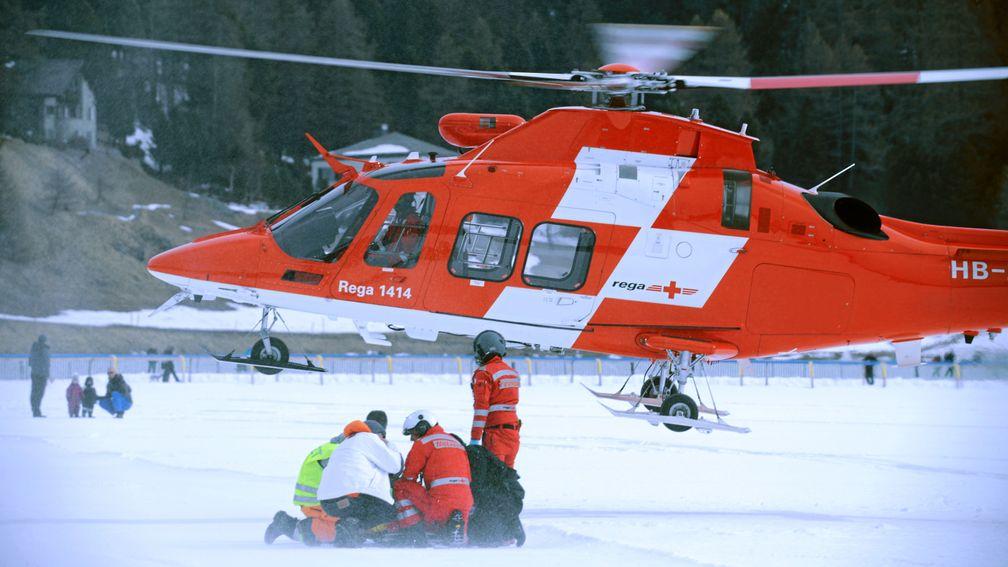
The uncertainty was maybe the biggest problem. With the best care available, George made slow, resolute, shuffling progress towards normality, but he was a jockey and he wanted quicker progress, towards being a jockey again, which was what had to happen. He told his mother as much as they watched the Grand National together, outlining his unlikely plan to become a jump jockey while she looked at him "as if I was an idiot"; he told his therapists, impatiently and stubbornly; he told his wife that he wanted to ride in Dubai in a week's time, while he was still in hospital.
"I was aware fairly early on that he wasn't going to come back as a jockey," she says, "but it took quite a while for George to realise."
"What drove me on every day to get out of my hospital bed was one aim: to ride again," he says. "I used to annoy Nicola by going on about it all the time, but it was a good thing for me to have that obsession. You've got to have something to drive you forward, even if it never happens."
The couple now live with their toddling daughter Isabella, right across the street from Nicola’s parents in her childhood home in Newbury, which works very well for all concerned. Nicola used to ride out for Hughie Morrison before going on maternity leave and then becoming her husband’s carer and driver, while George – who rode 1,364 winners, racked up six centuries, landed a British Classic on Harbour Law in the 2016 St Leger and Group 1s on Seal Of Approval, Thistle Bird and Quest For More – is forging a promising career for himself as a TV pundit, also soon to be agent to jockeys William Buick and James Doyle. He no longer thinks he's going to win the Grand National, which is a blessing to his mother and the rest of us, and his life is moving forward as a result, but it took a while for him to make peace with that fact.
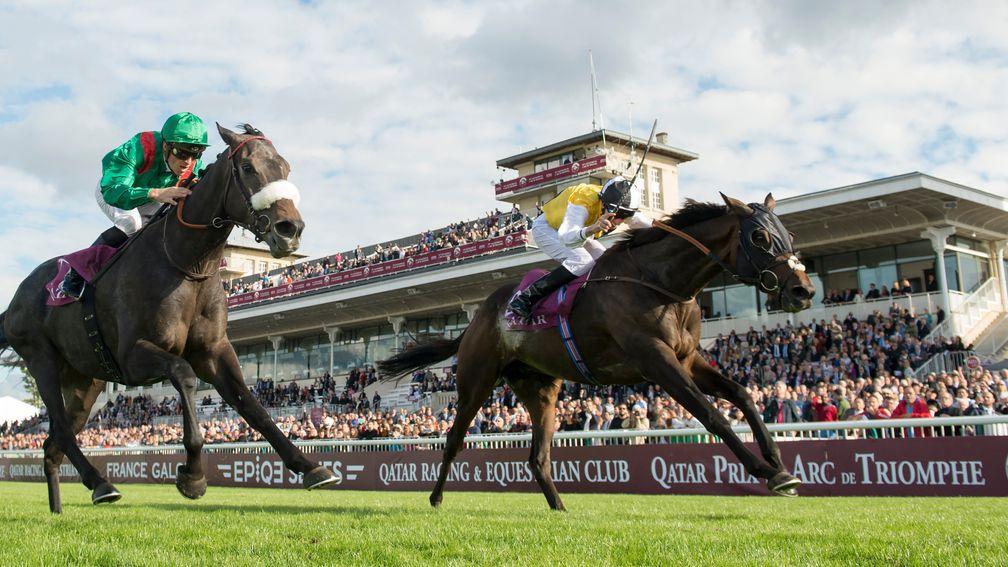
"There was a time in hospital when I was angry," he recalls. "I had no tolerance. I had an idea in my mind and if it didn't happen I wasn't happy. I even went back to weighing myself, convincing myself that next year I'd be riding again, but my balance is horrific and I don't think it will ever be what it was before.
"I think I've been very lucky, because there was a time when they thought the best I'd manage was to be walking with sticks, if at all. But it took a TV documentary to finally help me come to terms with the fact that my days as a jockey were over."
The film was called The Crash Reel and charted the life of champion snowboarder Kevin Pearce, whose stellar career was brought to a juddering halt by a brain injury suffered in a fall while training for the Winter Olympics. He was 22 years old and at the top of his game; then he was finished as an athlete and had to find another way to live his life.
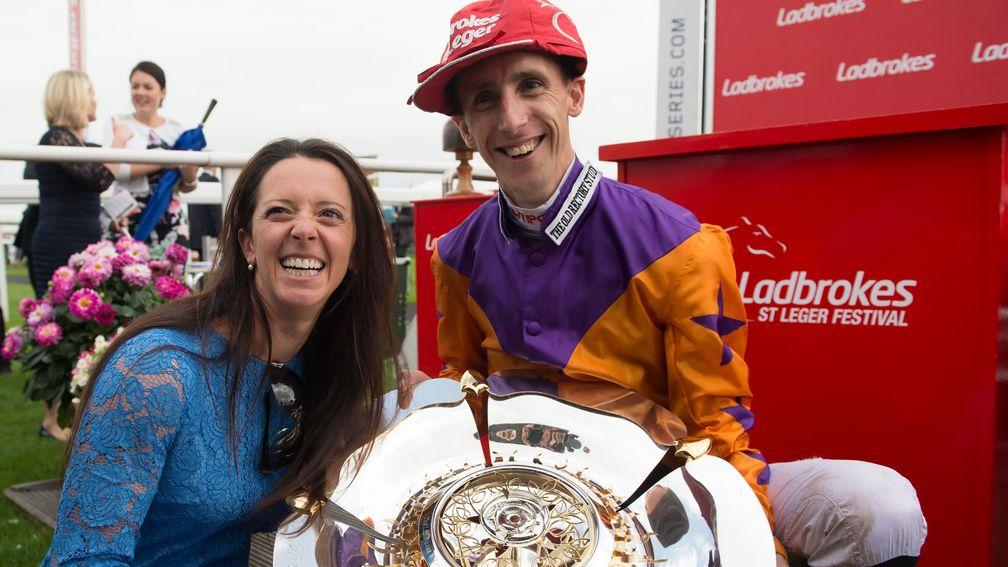
"They showed him when he thought he was going to be fine and as good as before," says George, "but it became very apparent that he wasn’t the same person. In his mind he was going to be able to do the same things again, physically, as he'd done before, but to watch him struggle, from being the best in the world to looking literally as though he'd never been on a snowboard before, to hear his specialist say he couldn't take another knock to the head, made me realise what was happening to me.
"Before that there had been a little glimmer, but seeing that film, something clicked in my mind and I accepted it. Straight away I was thinking 'I've got a family to provide for'. We're well insured and looked after but at some point I'd have to get out there and row my own boat.
"I wasn't in the very top tier as a jockey and it's hard work, but when you're going well and you're riding some big winners, it's fantastic money. When you're getting a riding cheque through every month you start to think of it as a normal thing when really it isn't, and I knew I had to move on.
"If I hadn't watched that film, it would have been heartbreaking to have been told my career was finished, but that prepared me for what had to happen."
The darker moments of the book, and some of the harrowing pictures, reveal just how far Baker has come, from high-performing athlete to angry, helpless child and then employable, mostly recovered trauma victim who nonetheless returned home from hospital to be greeted by a sign on the landing that read, in large and uncompromising letters, DO NOT GO DOWN THE STAIRS ON YOUR OWN.
The vain hopes of a return to race-riding have been replaced by a grateful realisation that what he has now is a lot better than many of the predicted alternatives, even if his wife still finds the patient a little trying at times.
"He's not back to normal," says Nicola matter-of-factly. "I think it's more in personal life. On the racing side he remembers everything, the form, the horses and the people, which allows him to work, but at home his temper is definitely shorter and he gets frustrated very easily at little things, like not being able to find something. He used to be a lot more placid and his short-term memory isn't as good as it was.
"It's all the little things about somebody that you learn to know and to love, and all of a sudden it's not quite the same. You notice the changes where other people might not. It has improved, but there was a time when it was very stressful."
"I can remember what I've been doing, but I have to write down what I'm going to be doing or I'll forget it," says George, who now keeps in the racing loop by helping out at the Lambourn yard of his good friend Ed Walker.
"My fatigue is definitely getting better but I still can't jump, I can’t walk backwards and the other day at Ed's we were walking down a steep bank from the house back to the yard, and I knew if I tried to walk down it I'd fall, so I just a slid down on my arse.
"It's not great but in the grand scheme it's not a big deal, and from what they told me I might have to expect, to what I've become, is real progress."
'I always say it's lucky I'm so thick, because it means I don't get too nervous'
His new role as agent to William Buick and James Doyle is a major boost to the fortunes of George Baker and will hopefully harness some more of the racing insight and expertise that has become increasingly apparent during his stints on Racing UK. Media work may not have been his first thought as a second career, but it came as a relief to finally be able to own up to himself and everybody else that his riding days were over.
"It had got to the stage where I had an automatic response every time somebody asked me about riding again: 'I don't know what's medically possible.' It was a shield to deflect the questions, because I knew more and more that it wasn't going to happen but I think I didn't want to admit it to myself.
"The TV helped me do that. I announced it on ATR's Get In! programme, went on Luck on Sunday that weekend, and it's becoming more natural the more I do it.
"I always say it's lucky I'm so thick because it means I don't get too nervous. You can't overthink it, you just have to treat it as though you're talking with friends, try not to sound like a robot. And everybody at RUK has been very good at helping me. You get criticism, of course, and you have to be pretty hardy, but you get used to that as a jockey.
"Yes, I miss the routine of riding, having structure to my days, the lads in the weighing room, the banter, the way of life, but having work to do at the races helps a lot.
"I hadn't realised what a great safety net the weighing room is when you're at the racecourse, just being able to go back there and disappear. If I went racing now as a spectator I'd feel out of place, because I'd have no reason to be there, but television gives me a sense of purpose."
Taking My Time: My Autobiography by George Baker is available to buy here
Members can read the latest exclusive interviews, news analysis and comment available from 6pm daily on racingpost.com
Published on inSeries
Last updated
- We believed Dancing Brave could fly - and then he took off to prove it
- 'Don't wind up bookmakers - you might feel clever but your accounts won't last'
- 'There wouldn't be a day I don't think about those boys and their families'
- 'You want a bit of noise, a bit of life - and you have to be fair to punters'
- 'I take flak and it frustrates me - but I'm not going to wreck another horse'
- We believed Dancing Brave could fly - and then he took off to prove it
- 'Don't wind up bookmakers - you might feel clever but your accounts won't last'
- 'There wouldn't be a day I don't think about those boys and their families'
- 'You want a bit of noise, a bit of life - and you have to be fair to punters'
- 'I take flak and it frustrates me - but I'm not going to wreck another horse'